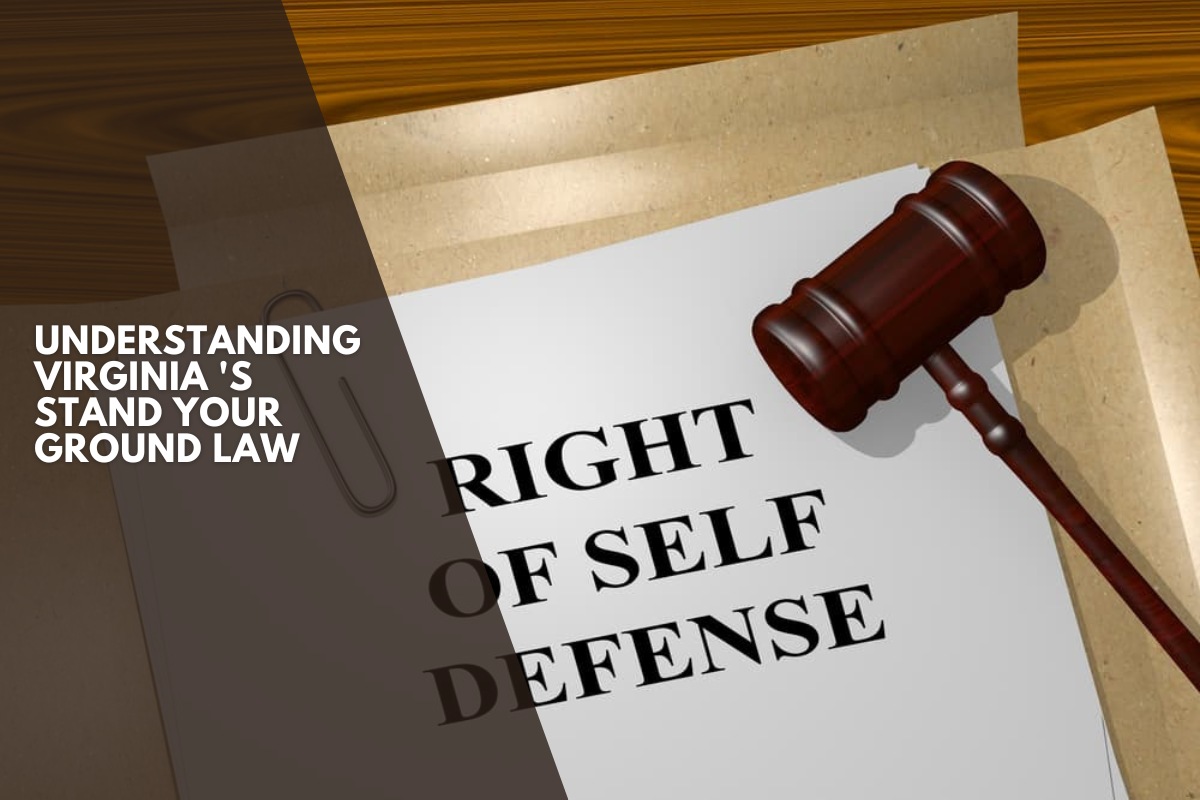Virginia’s Stand Your Ground law is a legal principle that allows individuals to use force, including deadly force, in self-defense without the obligation to retreat first when they are lawfully present in a place.
This means that if a person reasonably believes they face an imminent threat of death or serious bodily harm, they have the right to stand their ground and defend themselves without trying to escape the situation. The law overlaps with Virginia’s Castle Doctrine, which specifically protects individuals defending themselves in their homes.
Key Elements of Virginia’s Self-Defense Law
Virginia’s law focuses on three main criteria for justifiable self-defense:
Reasonable Belief: The person must reasonably believe that using force is necessary to prevent imminent death or serious bodily injury to themselves or others.
Lawful Presence: The person must be in a place where they have the legal right to be.
No Initial Aggression: The defender should not be the initial aggressor in the conflict.
If these conditions are met, the use of force, including deadly force, can be legally justified. The law protects individuals who act in genuine fear for their lives or safety.
Duty to Retreat and Exceptions
Unlike some states that impose a duty to retreat, Virginia generally does not require a person to retreat before using force if they are attacked in a place where they have the right to be, such as their home, workplace, or public spaces. This no-duty-to-retreat policy is central to the Stand Your Ground doctrine.
However, if a person provokes or initiates the violence, they may lose the right to claim self-defense. Additionally, outside the home or protected spaces, if someone can safely avoid the confrontation by retreating, the court may consider this in evaluating the reasonableness of their actions.
The Castle Doctrine in Virginia
Virginia’s Castle Doctrine extends special protections to individuals defending themselves inside their dwellings. It presumes that an unlawful and forceful intruder intends to cause harm, giving the defender the right to respond with reasonable, sometimes deadly, force without retreating or facing criminal liability.
Use of Deadly Force and Legal Immunity
The law permits deadly force only when necessary to prevent imminent death or serious bodily harm. Virginia’s “self-defense immunity law” provides legal immunity to those who use justified force, protecting them from criminal prosecution or civil lawsuits related to the use of that force.
Practical Implications and Legal Considerations
While Stand Your Ground empowers self-defense, it is not a free pass to use violence recklessly. The belief that force is necessary must be reasonable and based on the circumstances. Courts will scrutinize factors such as the nature of the threat, whether the defender was the aggressor, and if the force used was proportional.
Virginia courts have repeatedly upheld the right not to retreat in cases where a person is without fault and reasonably fears serious harm. However, self-defense claims require careful examination of evidence and can be complicated legal matters.
Summary
Virginia’s Stand Your Ground law allows individuals to use force without retreating when faced with immediate threats if they are lawfully present.
The Castle Doctrine provides added protection for defending oneself in a home or dwelling.
Use of deadly force is only justified when there is a reasonable belief of imminent death or serious injury.
The law offers legal immunity to those who use force in self-defense under these conditions.
The person claiming self-defense must not have provoked the conflict.
Courts evaluate the reasonableness and proportionality of the force used.
Understanding Virginia’s Stand Your Ground law is crucial for residents to know their rights and responsibilities when it comes to self-defense. While it offers robust protections, it also requires individuals to act responsibly and within legal boundaries to ensure self-defense claims hold up in court.
If facing a self-defense legal issue, consulting with experienced legal professionals is advisable to navigate the complexities of the law and protect one’s rights effectively.
Sources
[1] https://www.ncsl.org/civil-and-criminal-justice/self-defense-and-stand-your-ground
[2] https://lis.virginia.gov/bill-details/20251/SB1329/text/SB1329H1
[3] https://en.wikipedia.org/wiki/Stand-your-ground_law
[4] https://rt-stg.wd40.co.uk/understanding-virginias-castle-law-your-right-to-stand-your-ground/
[5] https://www.tkevinwilsonlawyer.com/library/how-self-defense-laws-in-virginia-can-help-in-your-defense.cfm











